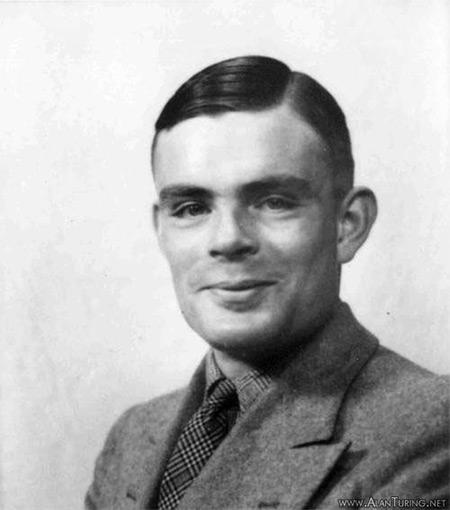
This weekend, a group of Nashville ensembles will present the U.S. premiere of a work they think of not as a performance, but an invitation to activism.
British composer James McCarthy’s oratorio, Codebreaker, illuminates key moments from the life of Alan Turing. The groundbreaking computer scientist broke Germany’s Enigma Code during World War II and established the quintessential test of artificial intelligence.
The middle portion of Codebreaker celebrates the profound achievement and professional dedication that marked Turing’s wartime effort. Some of its rhythmic patterns are even borrowed from the patterns of movement and sound made by the Enigma Machine and Bombe, the device Turing’s team developed for deciphering the German’s coded messages.
But the oratorio also tells the tragic last chapter of Turing’s life. He was a homosexual man at a time when being such was against British law.
In the early 1950s, Turing was arrested and made to choose between imprisonment and powerful injections to eliminate his libido. He opted for the drugs, which rendered him totally impotent. While he wasn’t behind bars, his security clearance was revoked, effectively stopping his most meaningful work. In 1954, he committed suicide, killing himself by eating an apple that he had laced with cyanide.
A pair of choirs that champion LGBT equality, Nashville in Harmony and North Carolina-based One Voice Chorus, will be joined by singers from The Temple and the instrumentalists of Intersection for this weekend’s shows.
Nashville In Harmony Artistic Director Don Schlosser says the story of the treatment Turing endured, despite his contributions to society, is one his group needs to tell. In promotional materials for the concert, Schlosser makes his hope clear: He believes putting a human face on the history of discrimination may help inform a younger generation and nudge some in the audience into gay-rights activism.
It is a powerful, and powerfully sad, tale. For his libretto, McCarthy used passages from poems that expressed the sort of feelings he imagined Turing would have understood, including passages by Oscar Wilde, who was also arrested and convicted under the same “indecency” law. But the composer was also careful to make sure his oratorio is a story with hope and beauty.
The opening section tells the love story between Turing and Christopher Morcom and the romantic evenings they spent under the night sky, mapping stars together. Appropriately, the choral work will be paired with the Nashville premiere of Seeing is Believing for electric violin and ensemble, instrumental music inspired by stargazing.
The program, called Mapping Stars, begins at 7:30 Saturday evening and 3:00 Sunday afternoon at East Nashville Magnet High School.
James McCarthy talks about the composition of Codebreaker in this video prepared before a British performance of the oratorio
https://www.youtube.com/watch?v=gIkCEUzwYVI
